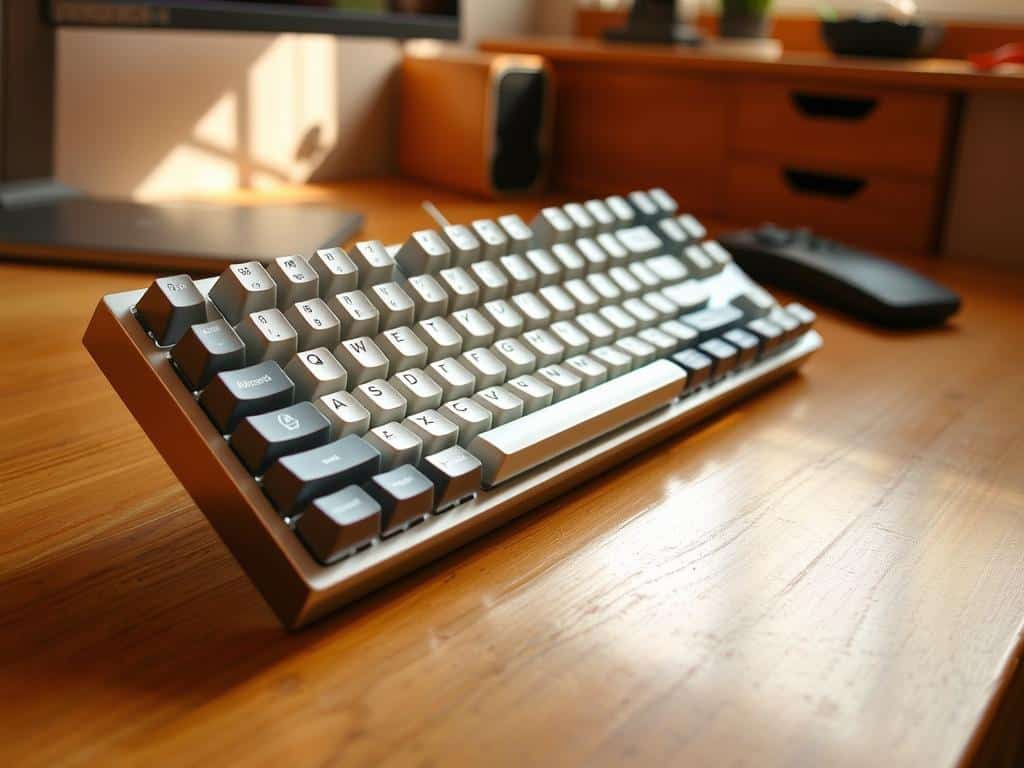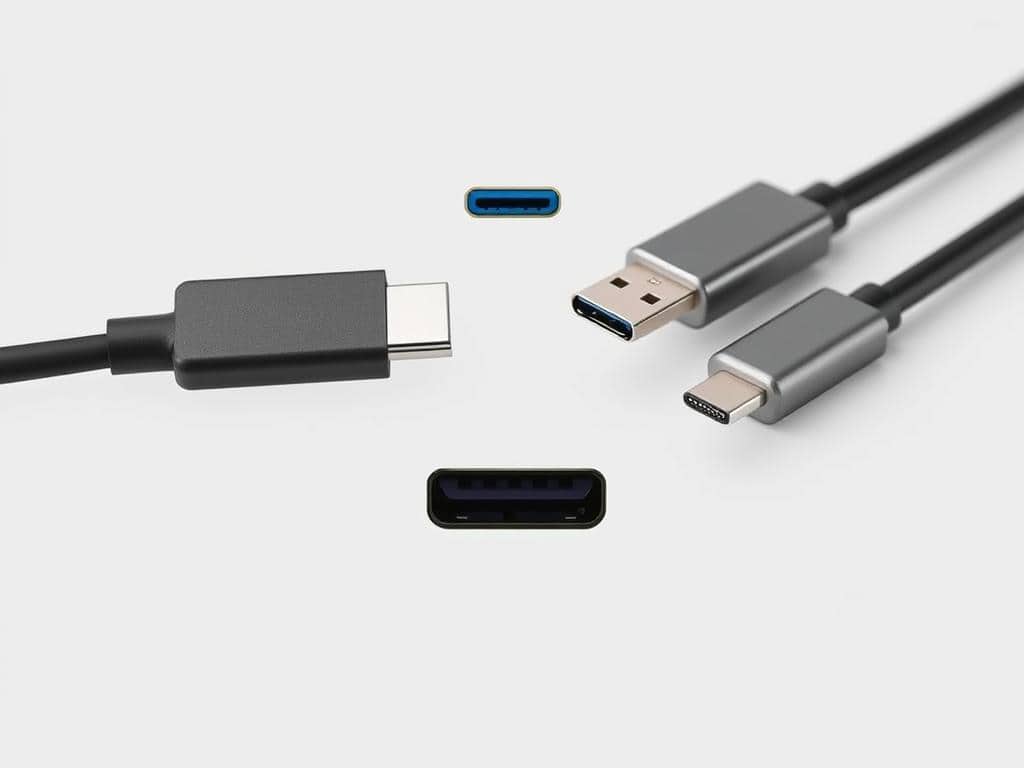Did you know mechanical keyboards can last up to 100 million keystrokes? In contrast, membrane keyboards only last about 5 million keystrokes. This big difference in durability is a key factor for many when choosing between these two types of keyboards.
As I look into both mechanical and membrane keyboards, I want to help you decide which is best for you. Whether you’re a gamer, office worker, or someone who values quality, this comparison will help. It will show you which keyboard can improve your gaming and typing.
Key Takeaways
- Mechanical keyboards last significantly longer than membrane keyboards, often up to 100 million keystrokes.
- 70% of gamers prefer mechanical keyboards due to their tactile feedback and durability.
- Membrane keyboards tend to be more budget-friendly, priced 20-50% lower than mechanical options.
- Using a mechanical keyboard can increase typing speed by 10-15% compared to membrane keyboards.
- Mechanical keyboards provide customizable features, enriching the gaming experience.
- Office workers report more discomfort when using membrane keyboards over extended periods compared to mechanical keyboards.
Understanding the Basics of Mechanical and Membrane Keyboards
Keyboards come in two main types: mechanical and membrane. Knowing the differences helps me choose what’s best for me. Each type has its own features for different users.
Key Differences in Construction and Design
Mechanical keyboards have individual switches for each key. This gives a tactile feel that many like. It makes typing more precise and fast, great for gamers and programmers.
Membrane keyboards use a rubber dome under the keys. They are quieter but lack the tactile feel. Those who want quiet typing might choose membrane keyboards. Others might prefer the feel of mechanical keyboards.
Durability Ratings of Keyboards
Durability ratings show how long a keyboard lasts. Mechanical keyboards can last 20 million to 100 million keystrokes. This makes them durable for heavy users.
Membrane keyboards are cheaper, starting at $10. They last about 5 million to 10 million keystrokes. This durability difference affects user choices, with gamers and typists often choosing mechanical keyboards.
Common Uses and User Preferences
User preferences are key in choosing between mechanical and membrane keyboards. About 60% of gamers prefer mechanical keyboards for their feel and durability. Membrane keyboards are better for quiet places like offices.
Younger people are increasingly choosing mechanical keyboards for better typing speed and comfort. Studies show a 20% increase in typing speed with mechanical keyboards. This shows the benefits of better keyboard design.
Evaluating the Typing Experience
The typing experience can vary a lot between mechanical and membrane keyboards. Knowing these differences is key to picking the right one. Tactile feedback is a big part of this, making typing feel better and helping with speed and accuracy.
For those who play games fast or work hard, this is even more important.
Tactile Feedback and Key Response
Mechanical keyboards are known for their tactile feedback. This gives users a clear feel when a key is pressed. The type of switch used can change how much resistance and click there is.
Membrane keyboards don’t give this sharp feedback. This can make typing feel less good. It can also slow down typing, which is a problem in fast-paced tasks like coding or gaming.
Noise Levels During Use
Noise levels are also very important. Mechanical keyboards can be loud, which might be distracting in quiet places. About 75% of the noise comes from how loud it is, and 25% from the high-pitched clicks.
Membrane keyboards are much quieter. This makes them better for offices or shared spaces. Finding a keyboard that balances feedback with quietness is key.

Choosing a Custom Keyboard for Your Needs
Choosing a custom keyboard means looking at features that make typing better. There are many options, like mechanical keyboards, that let you pick switch types, keycap materials, and RGB lighting. Gamers love these for their looks and performance.
Custom keyboards let you make your keyboard your own. You can match it to your style and how you use it.
Customization Options Available
Custom keyboards come in many layouts, like 60%, 65%, TKL, and 75%. Each layout meets different needs, from being small to keeping all the important keys. Hot-swappable PCBs are popular because they let you change switches easily without soldering.
Switch types, like linear, tactile, and clicky, let you adjust to your typing style. Keycap materials, such as PBT or ABS, affect the keyboard’s look and feel.
Affordability and Cost-Effectiveness
When picking a custom keyboard, cost is key. Mechanical keyboards are pricier because of their features and customization. But, they offer a lot for those willing to spend.
For those watching their budget, membrane keyboards are cheaper and simpler. They’re a good choice if you don’t need all the bells and whistles of a mechanical keyboard. It’s important to think about what you need and what you can afford.
Conclusion
When comparing mechanical and membrane keyboards, each has its own benefits. Mechanical keyboards are great for gamers and heavy typists. They last longer and offer better feedback.
Cherry MX switches in mechanical keyboards can handle millions of keystrokes. This makes them durable and reliable.
Membrane keyboards, on the other hand, are quieter and cheaper. They’re perfect for work or light typing. Their design is simpler, which some people prefer.
Choosing the right keyboard depends on your needs. Mechanical keyboards are for those who want customization and durability. Membrane keyboards are better for quiet, budget-friendly options.
Think about what you need before deciding. Whether you want a mechanical or membrane keyboard, the right choice will make typing better for you.



